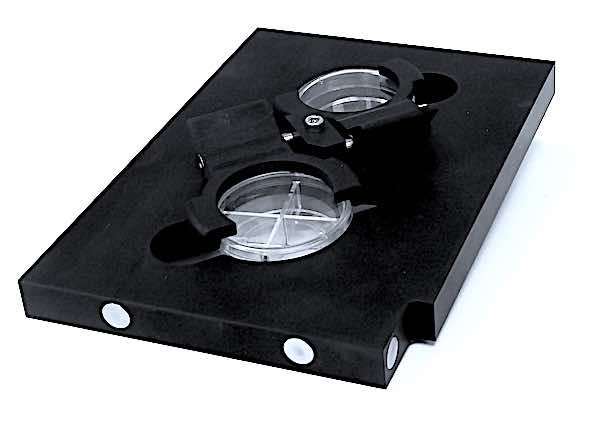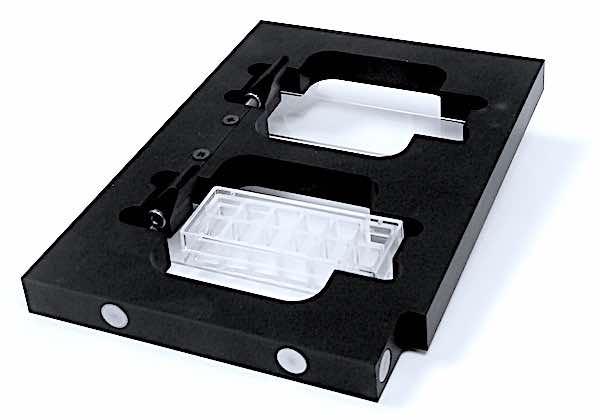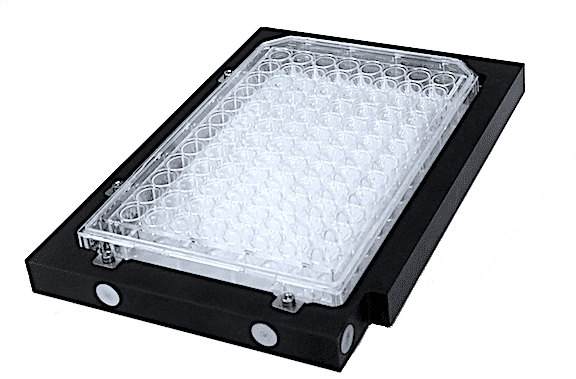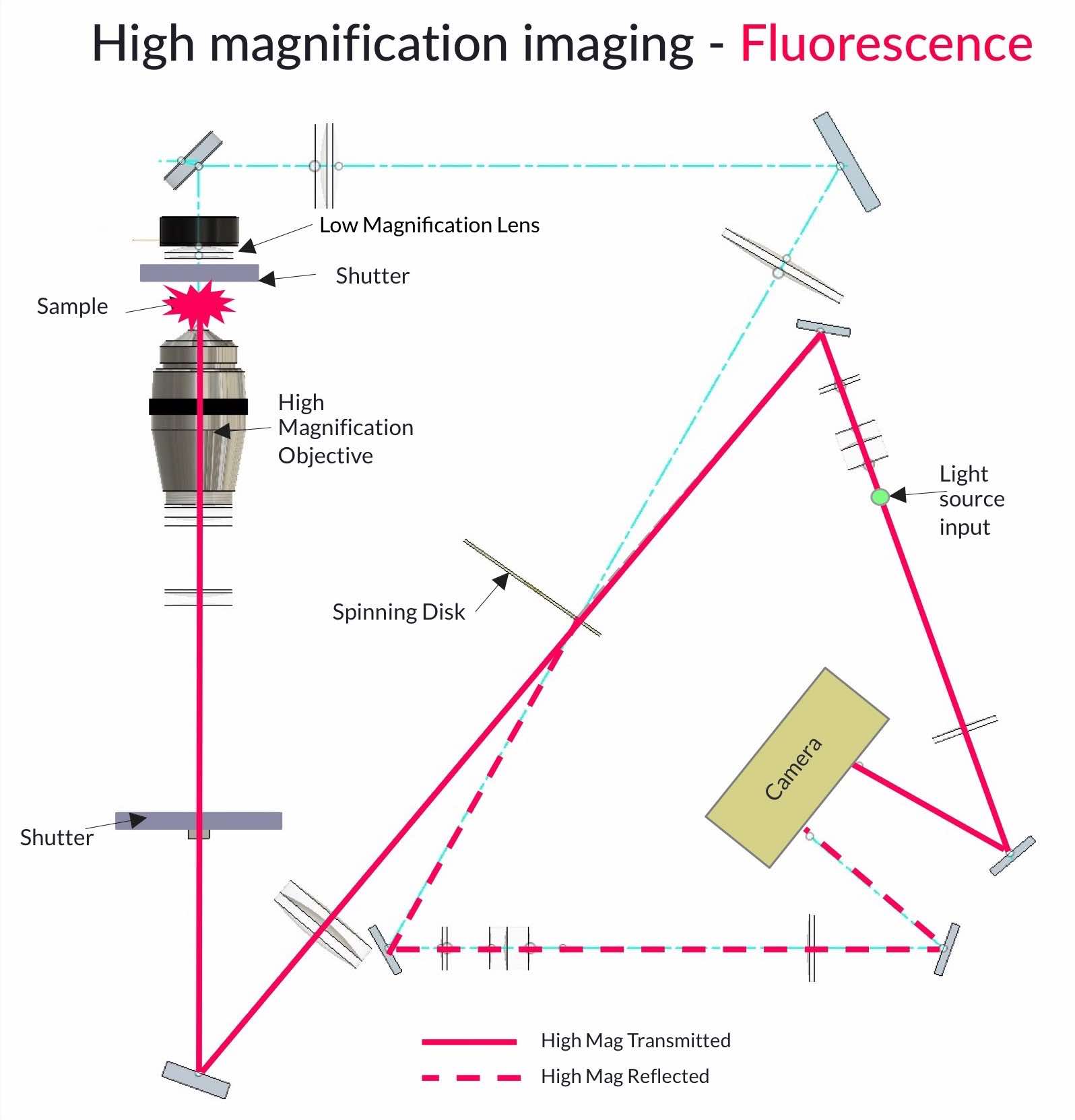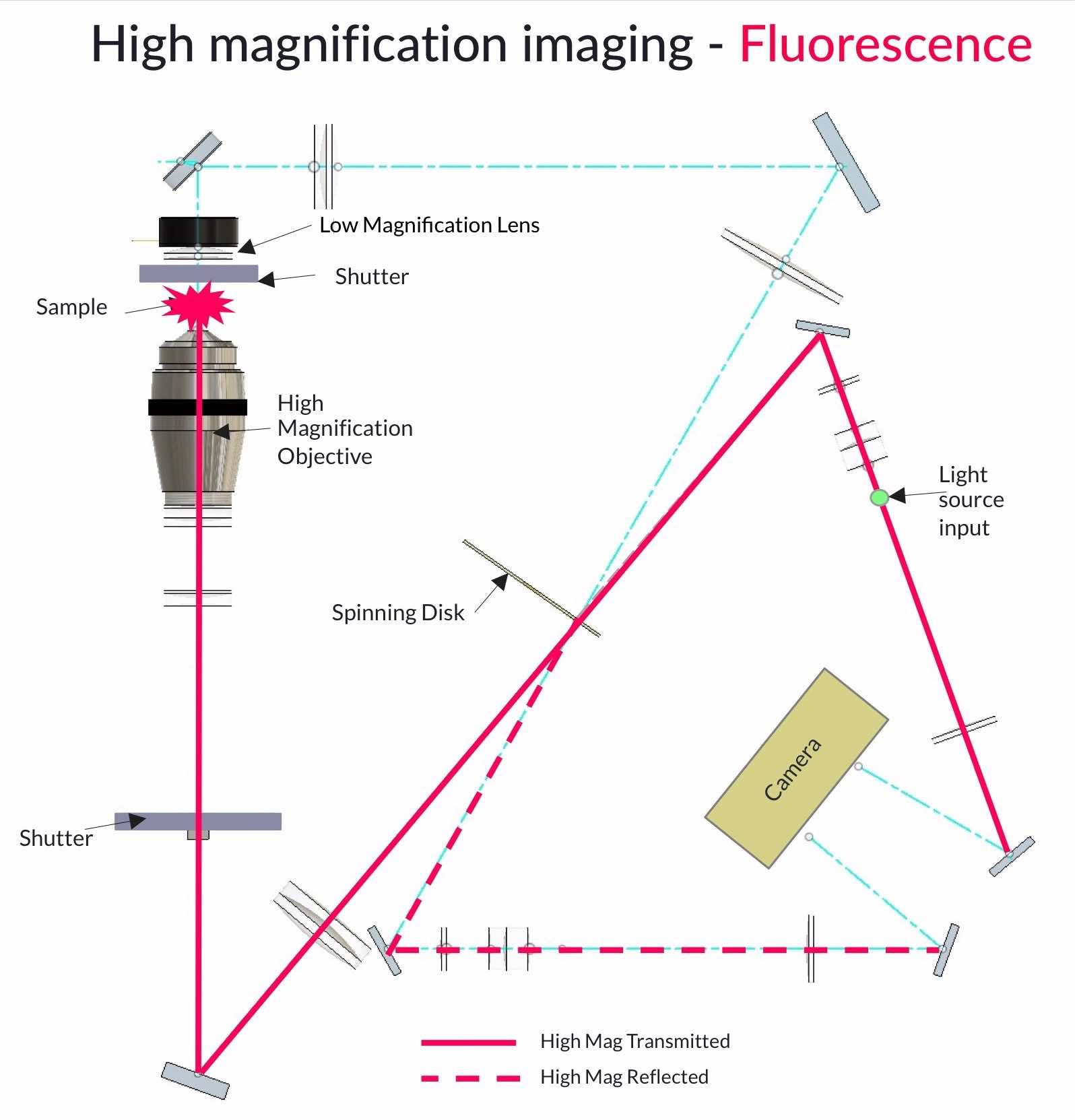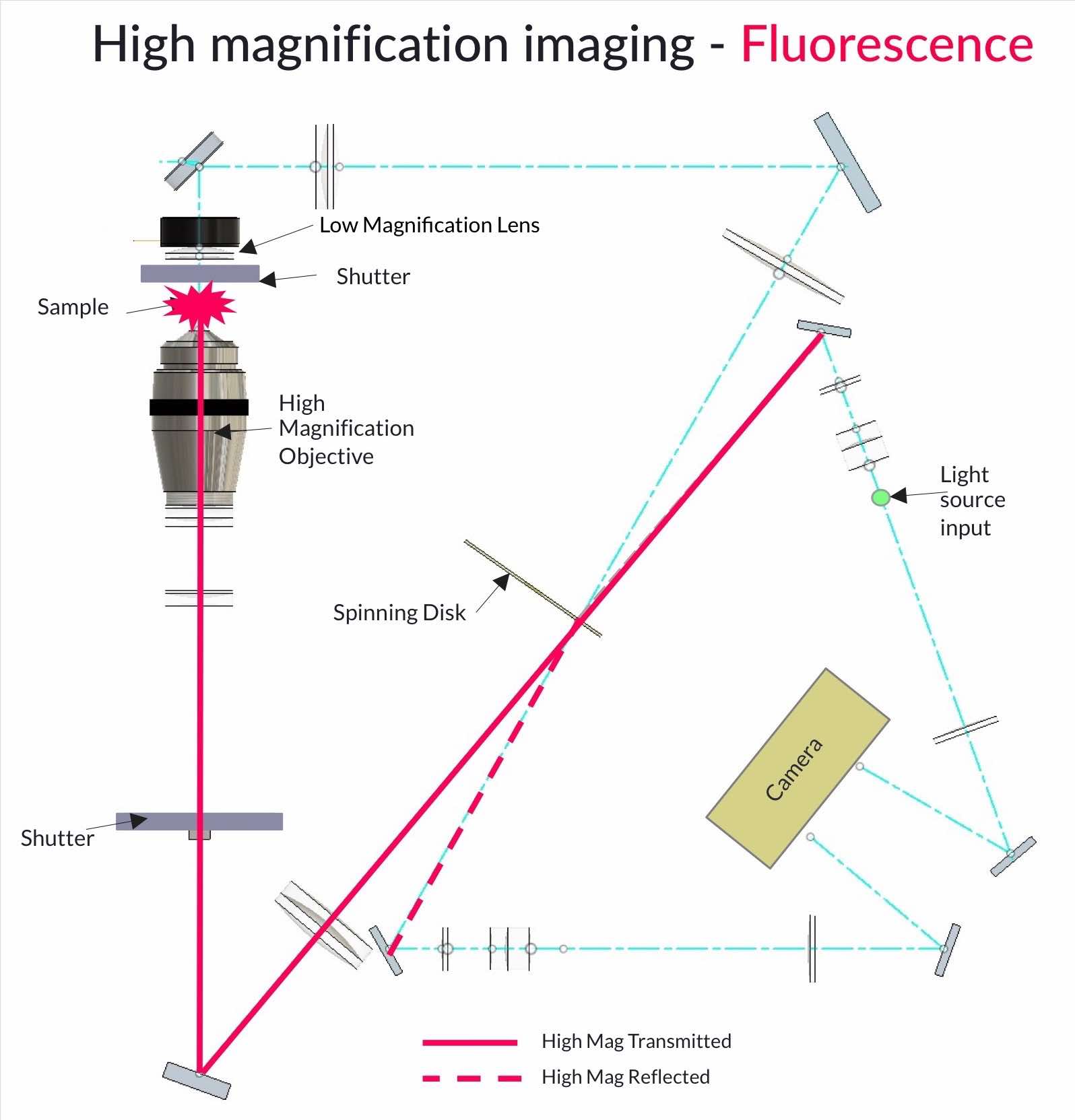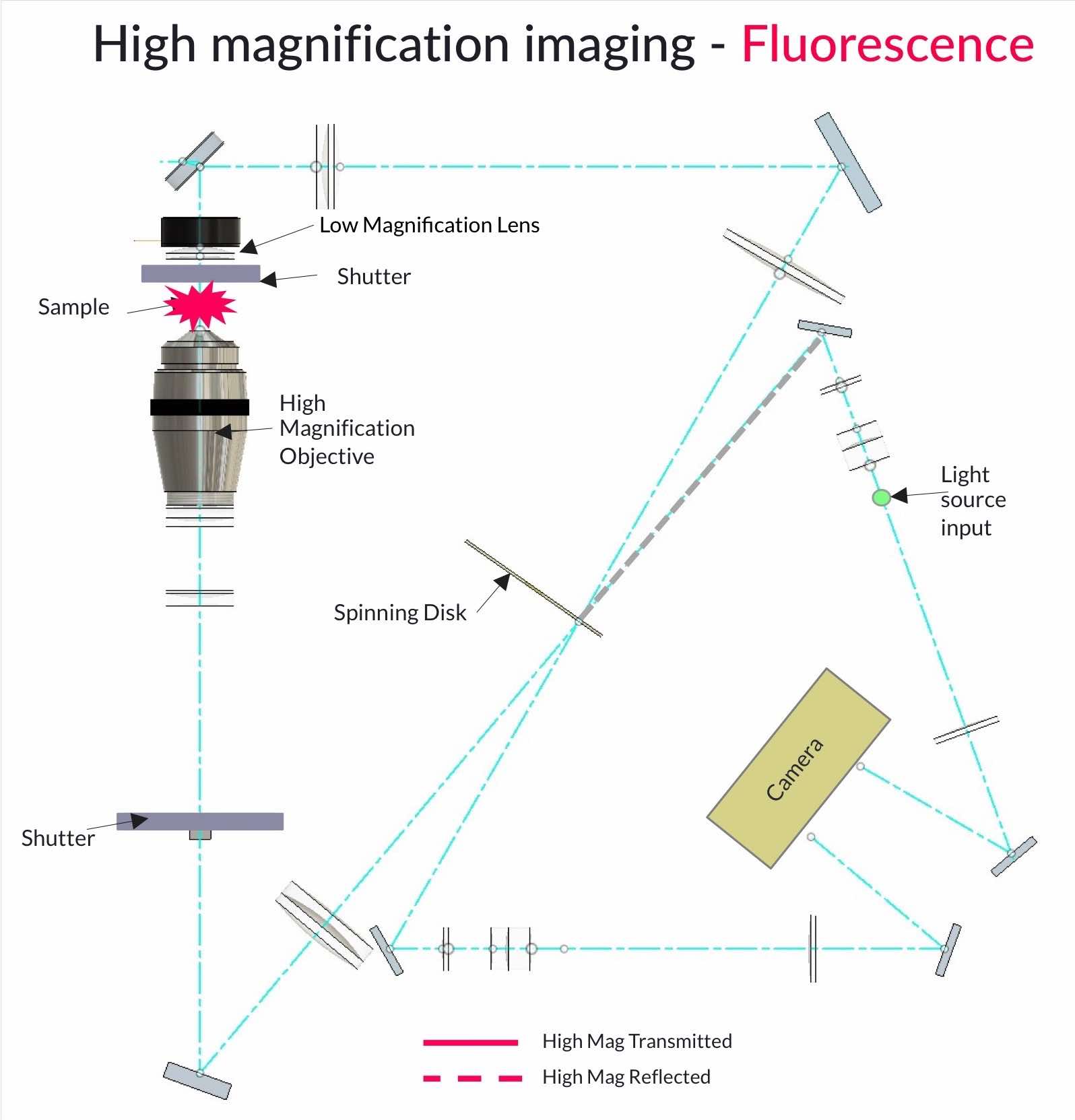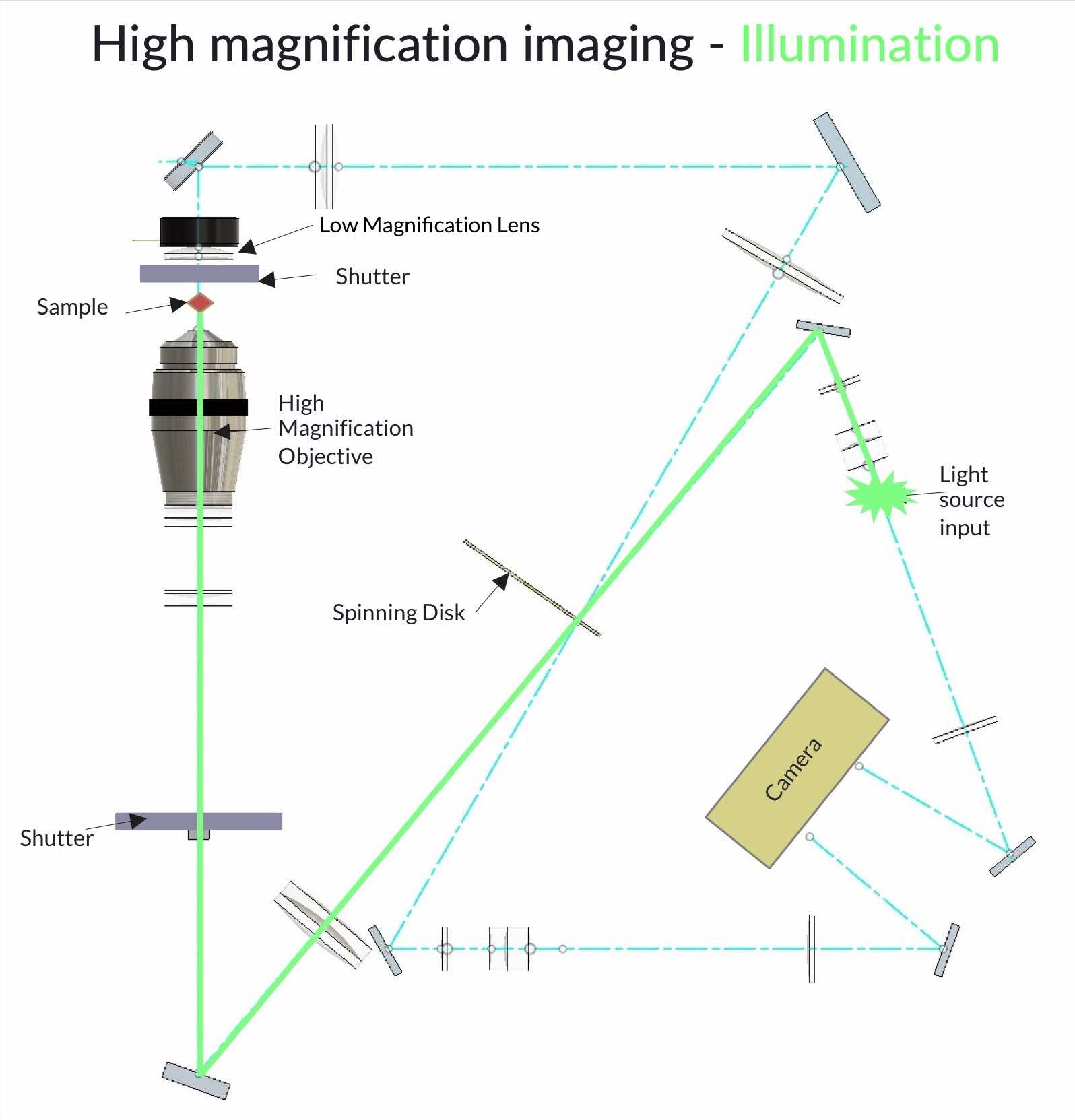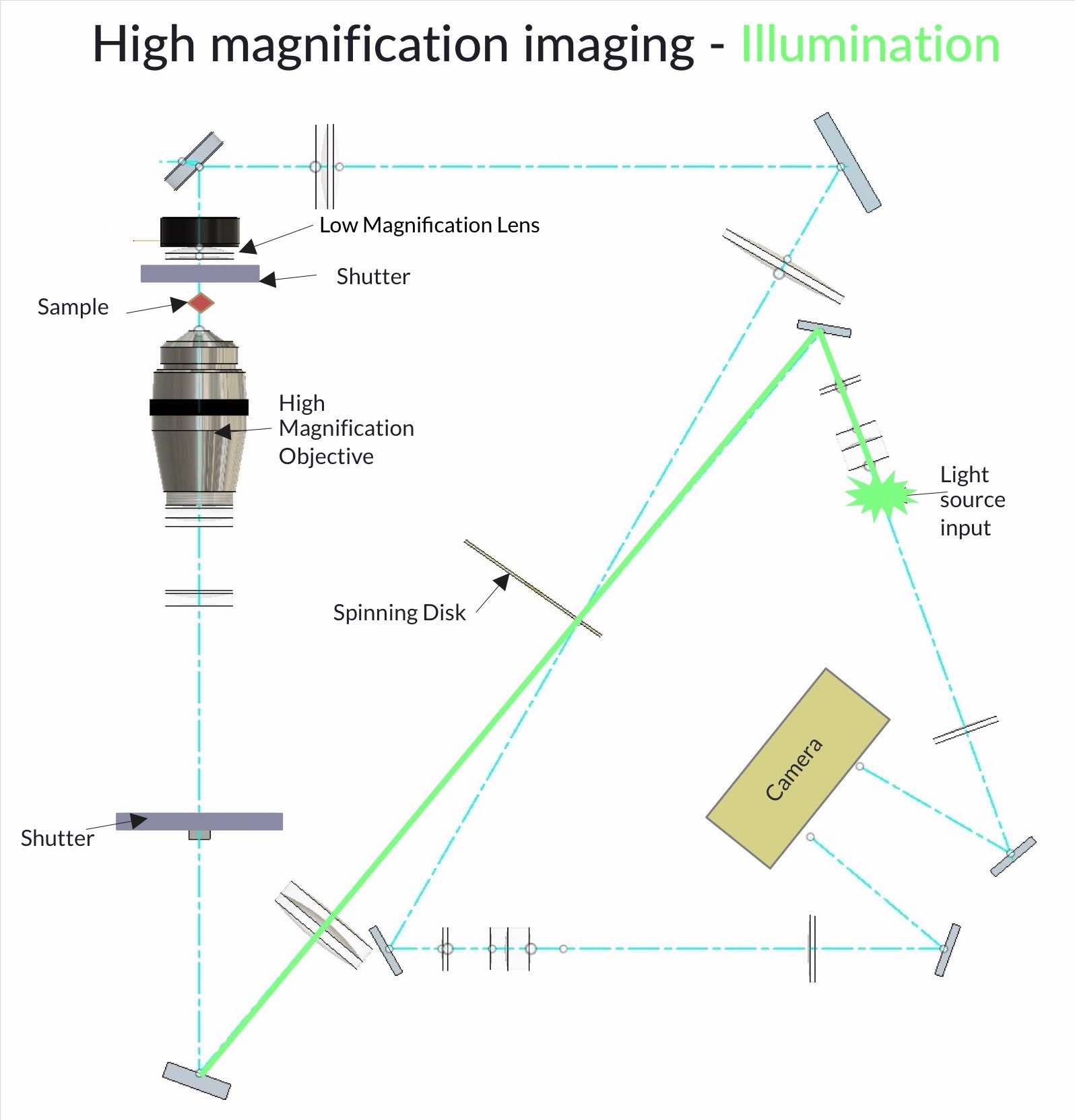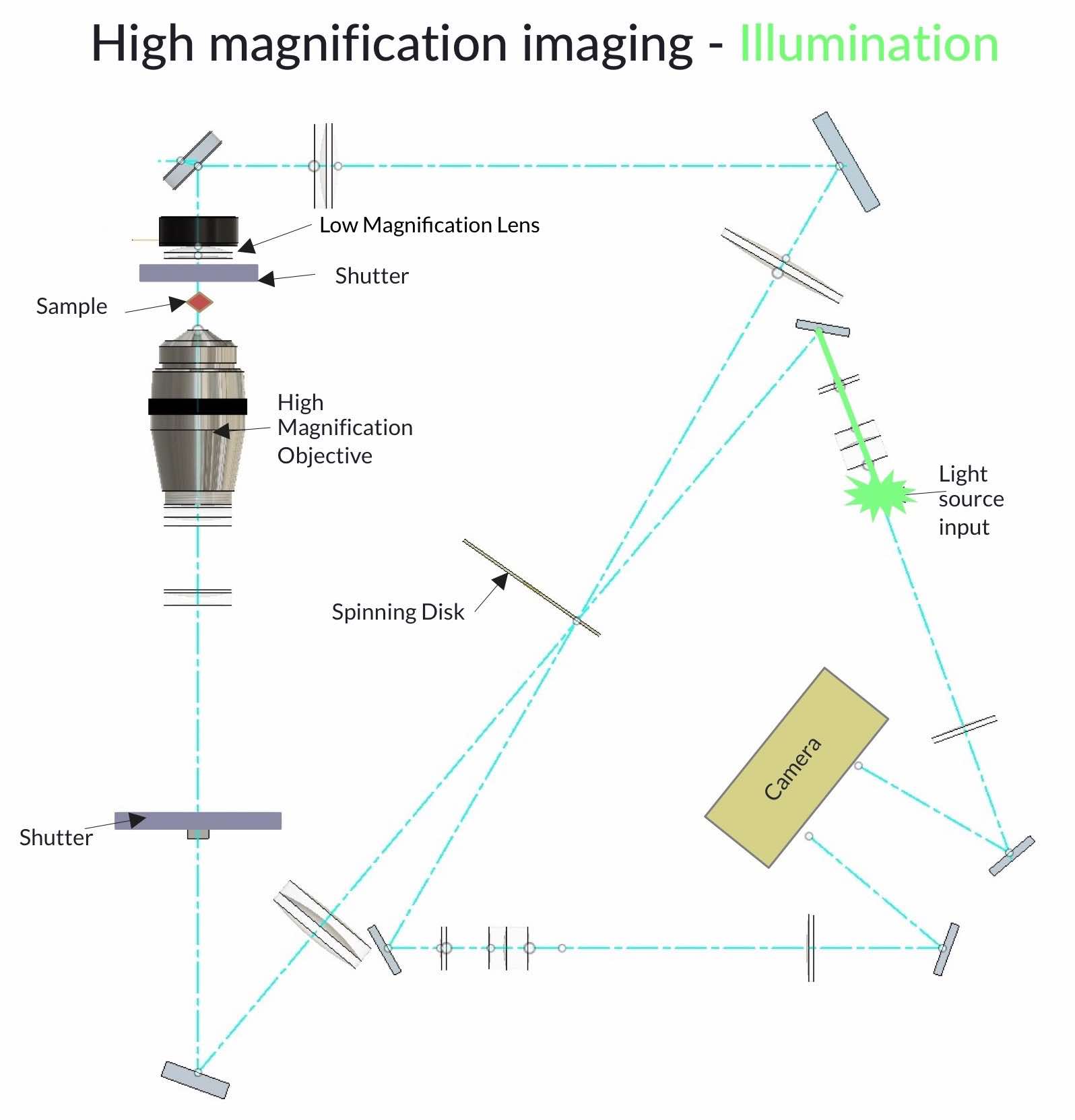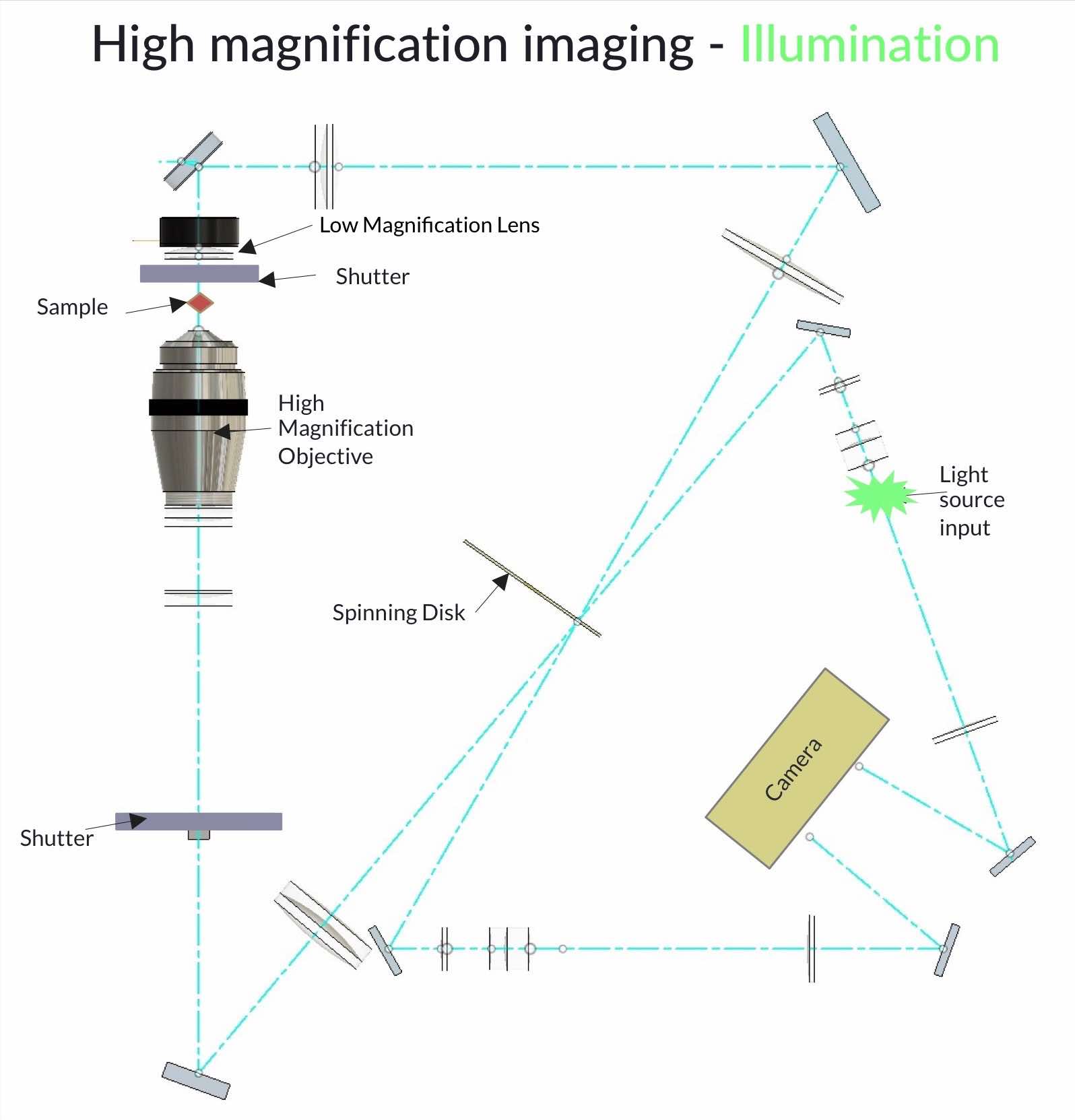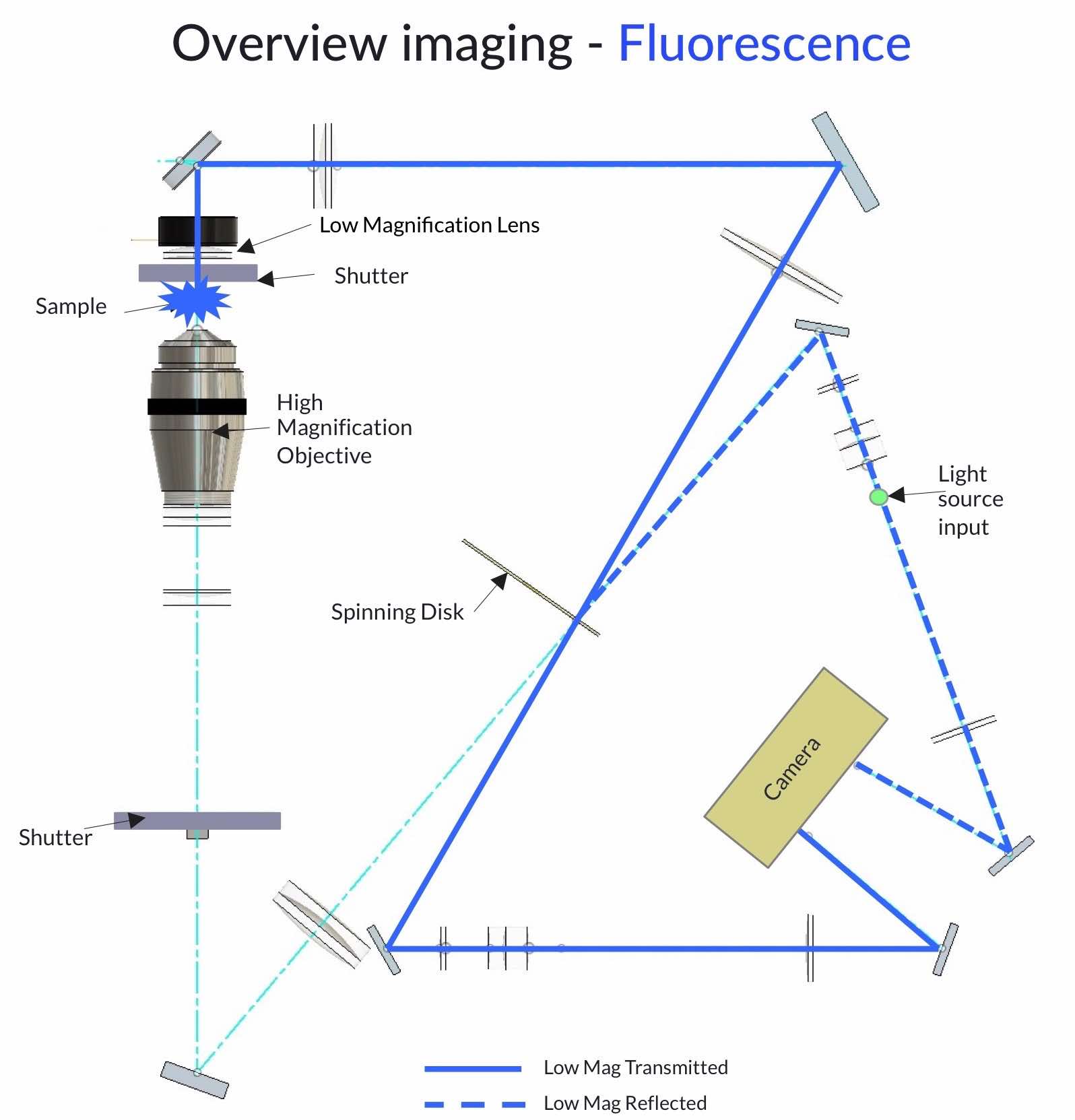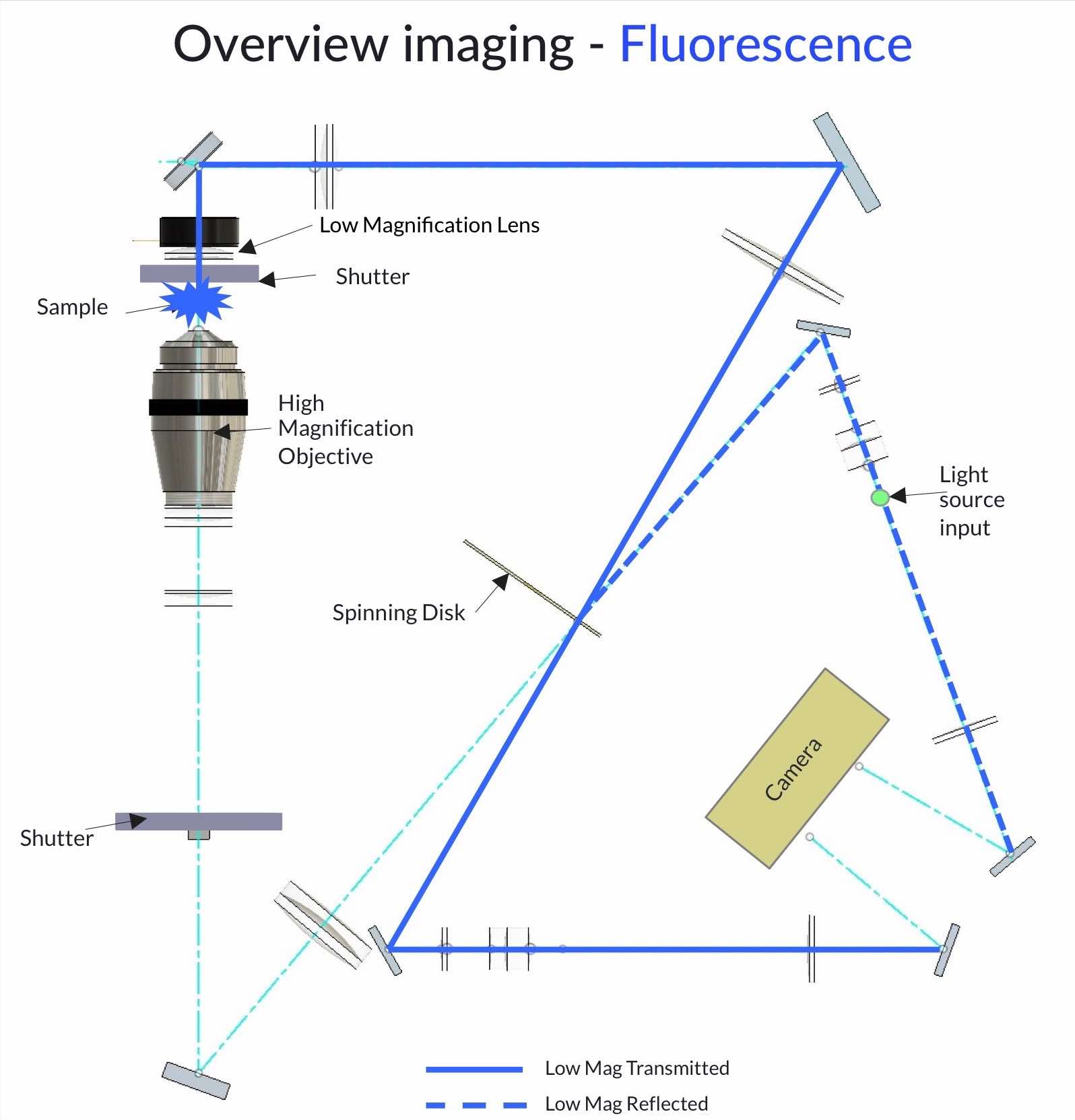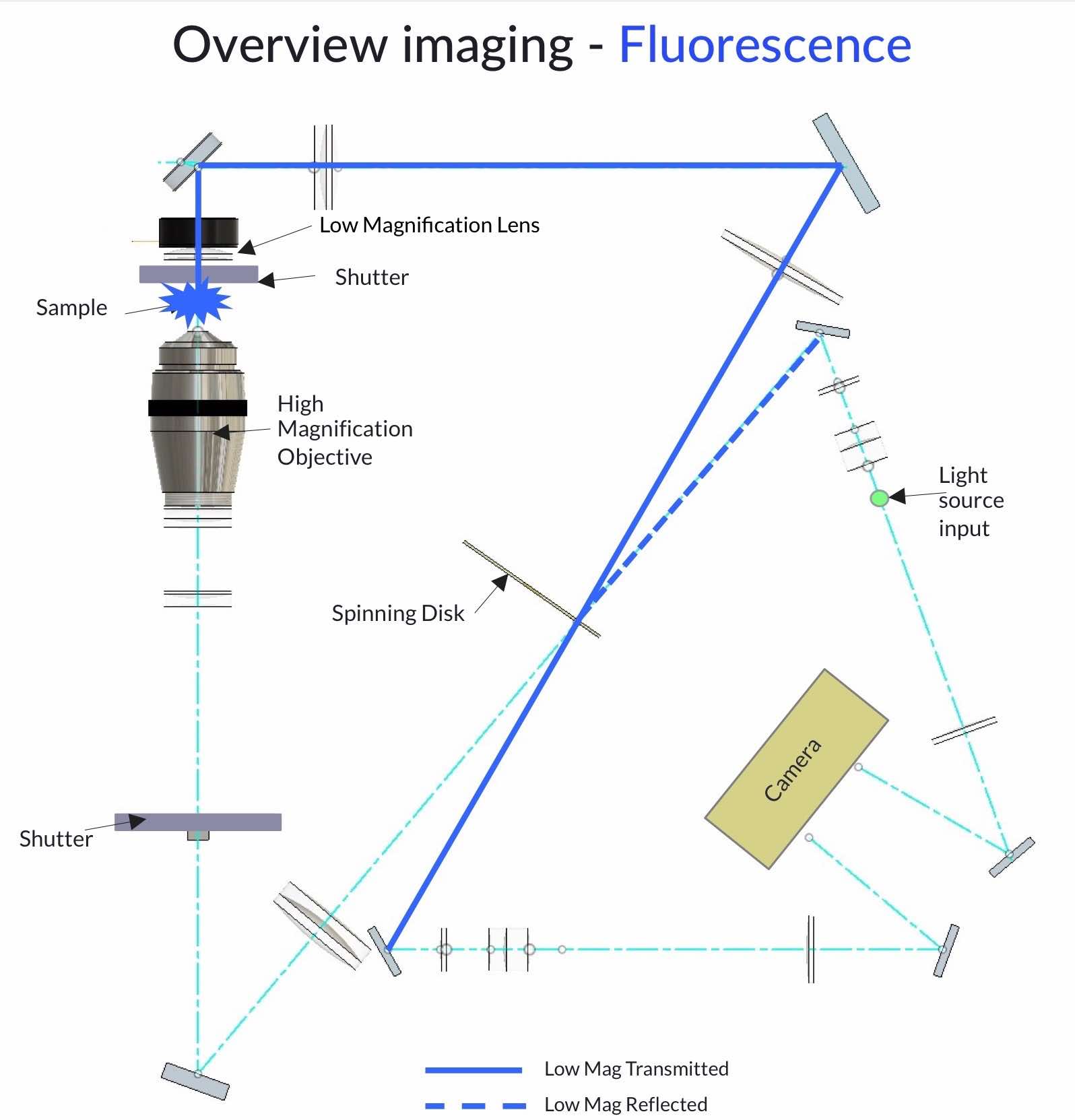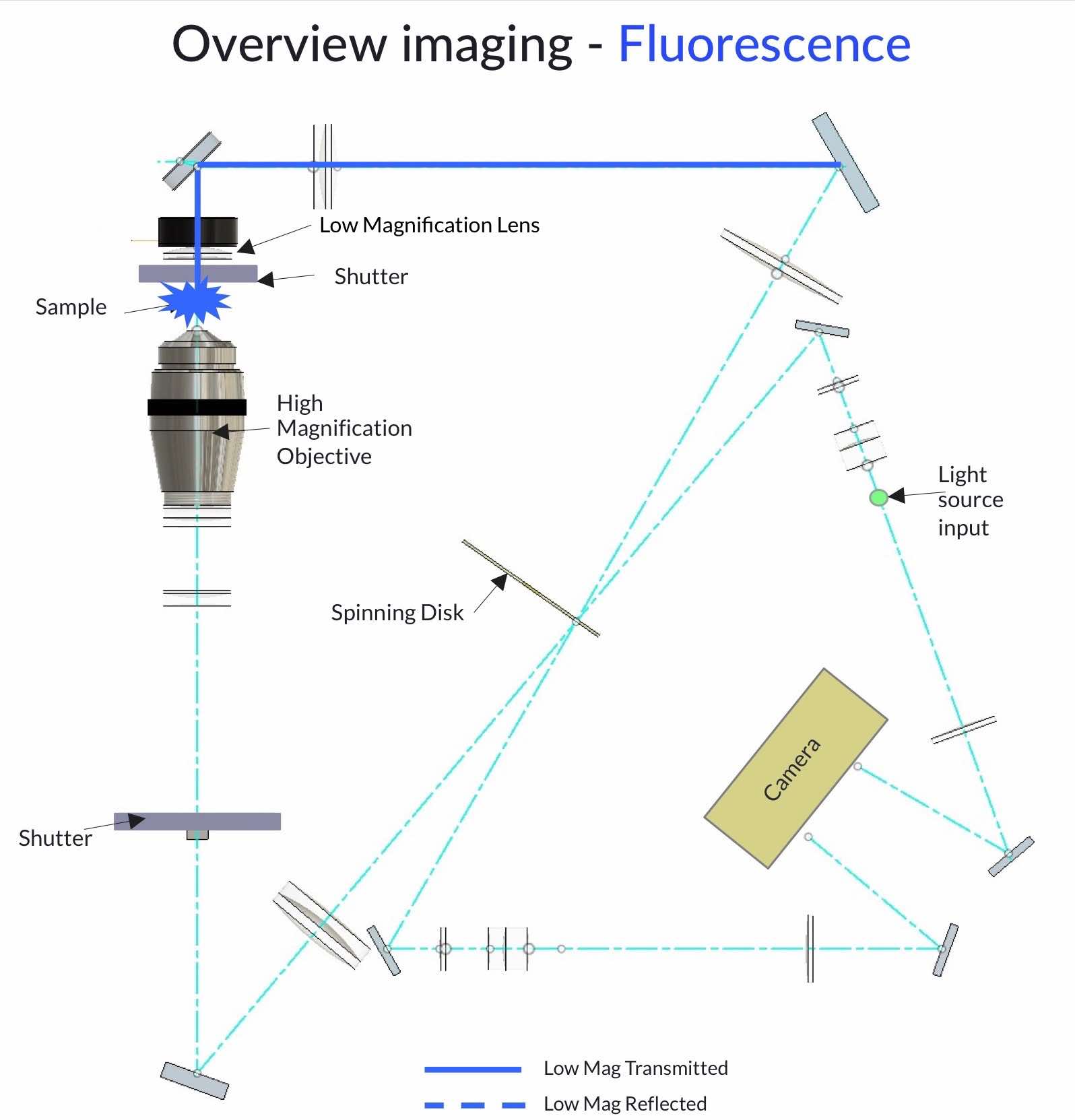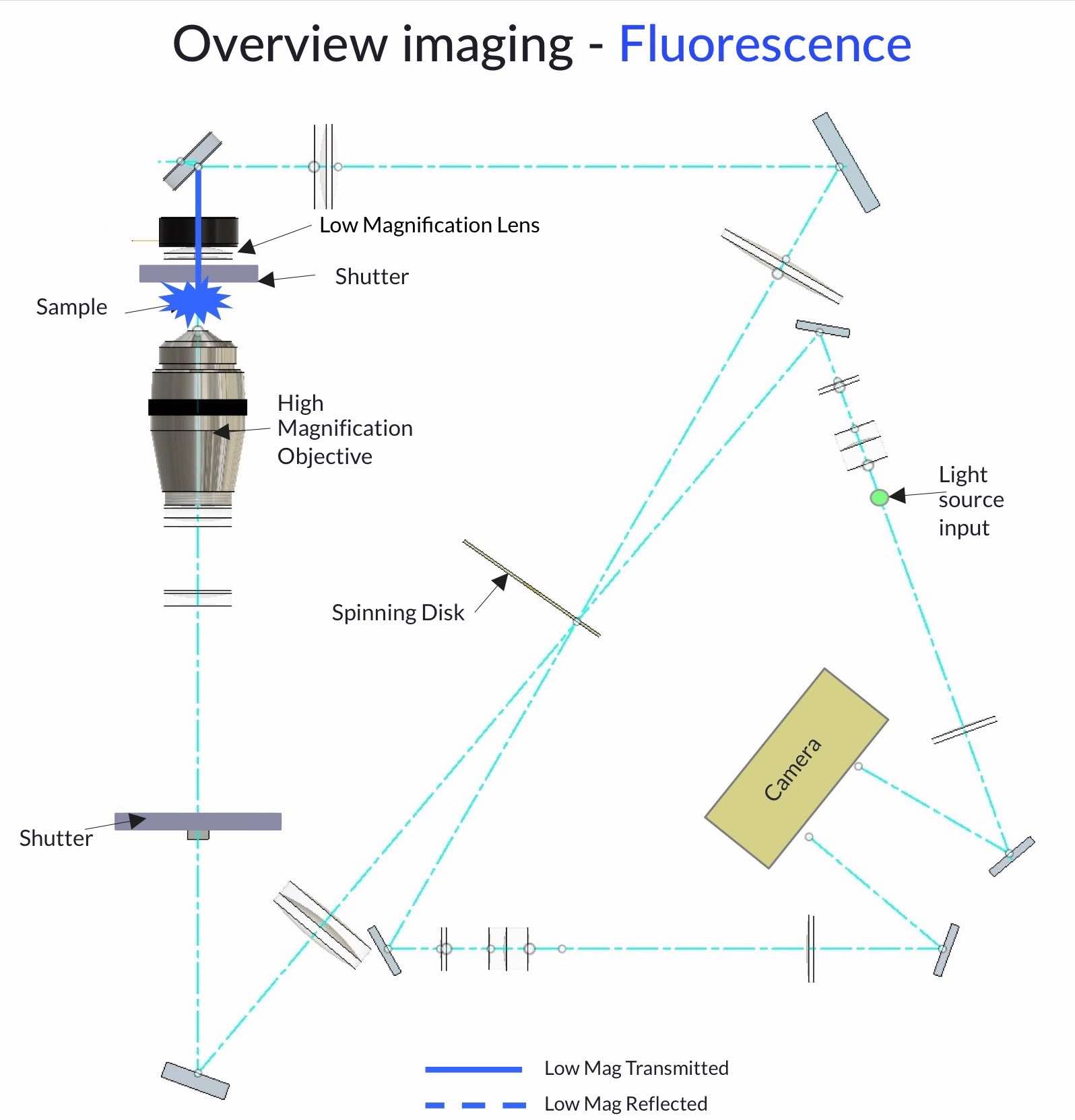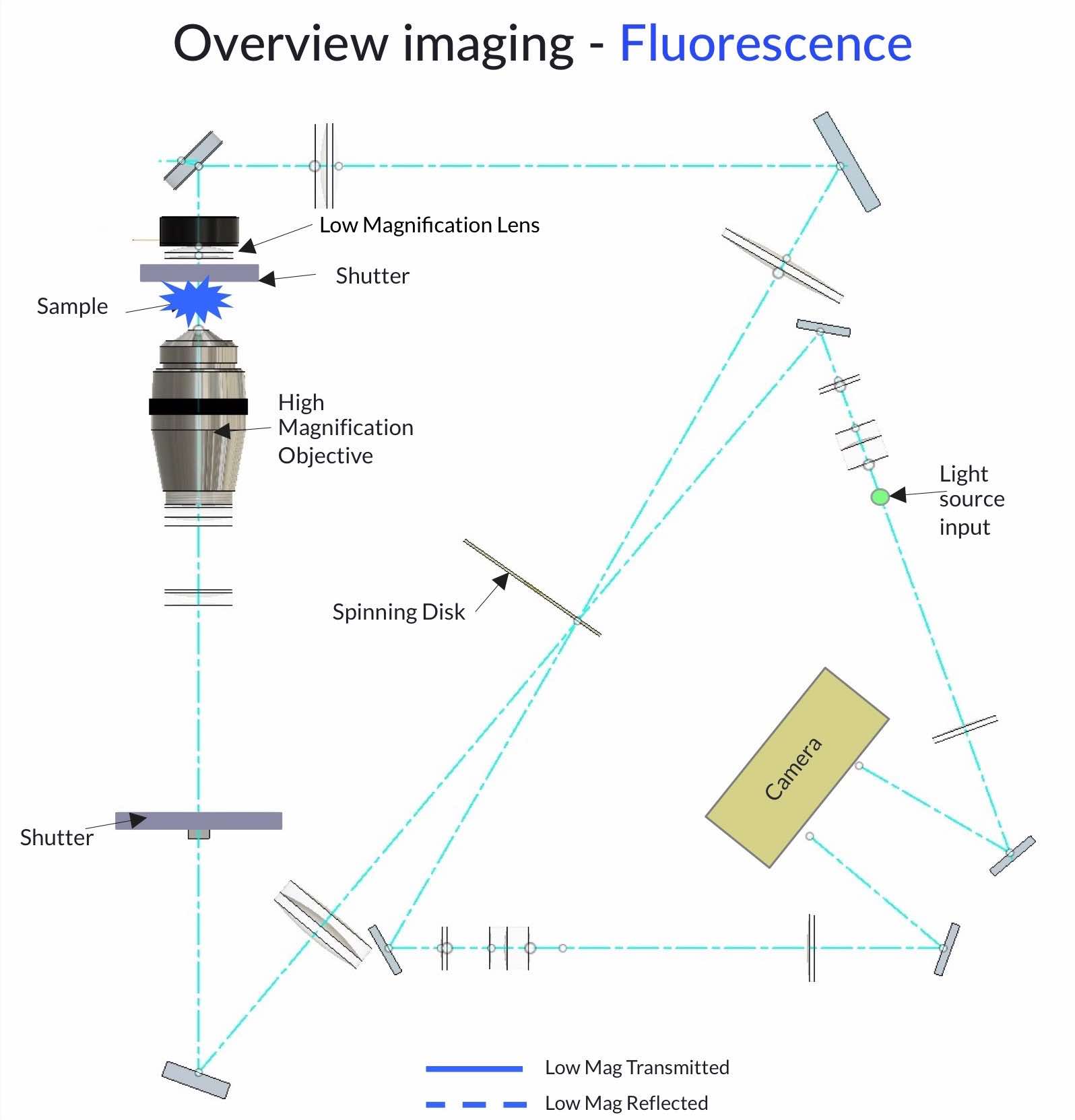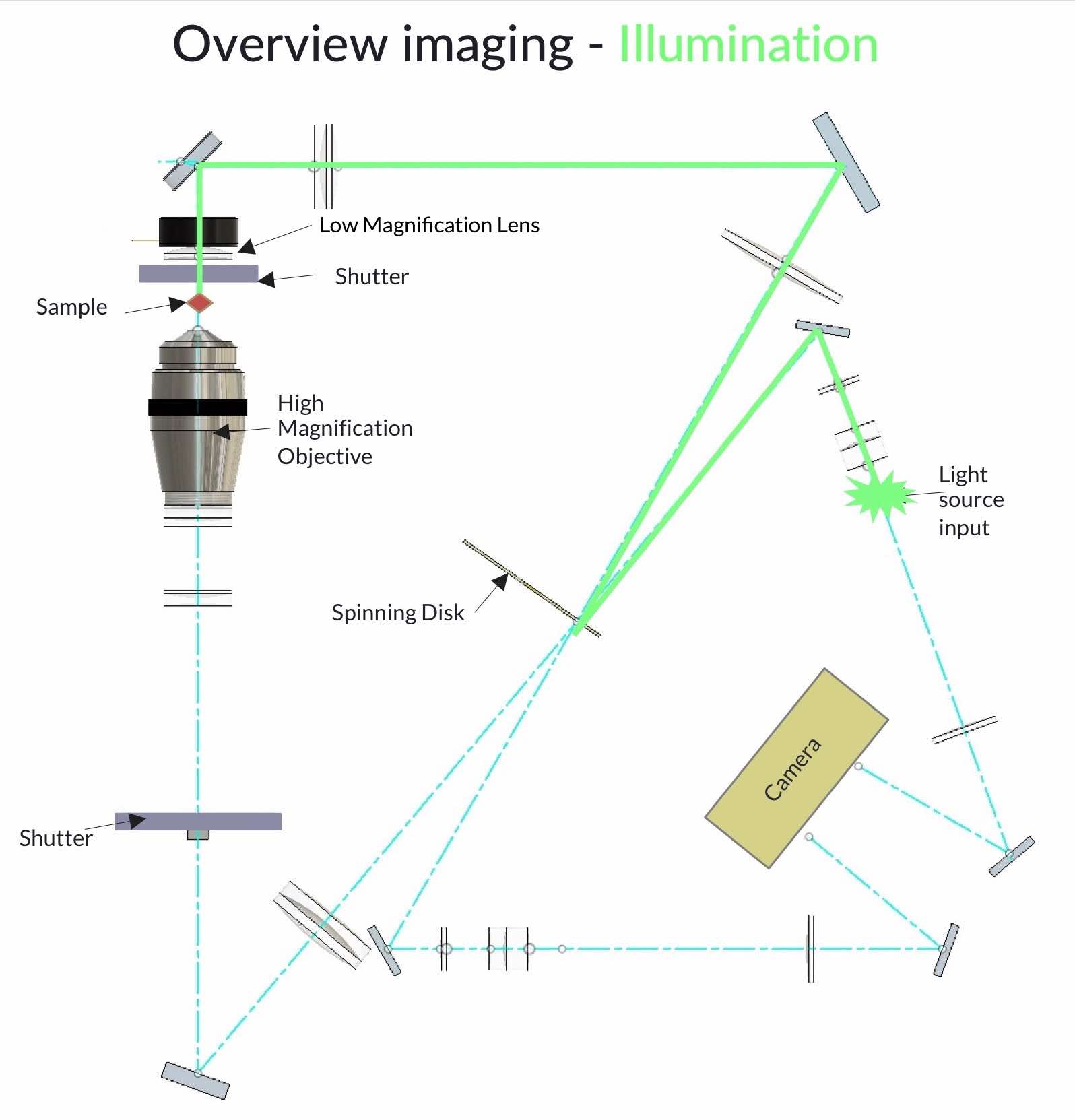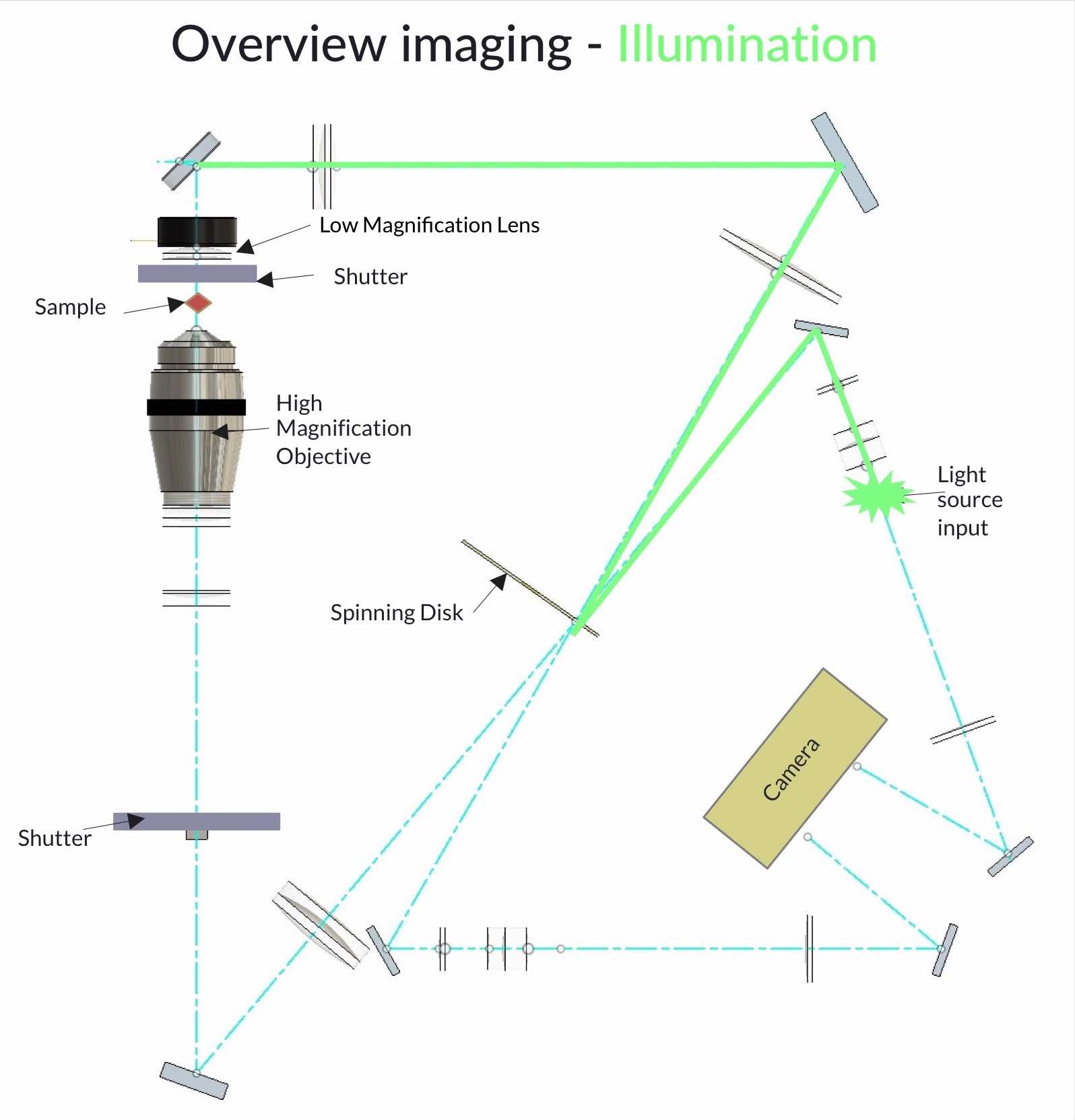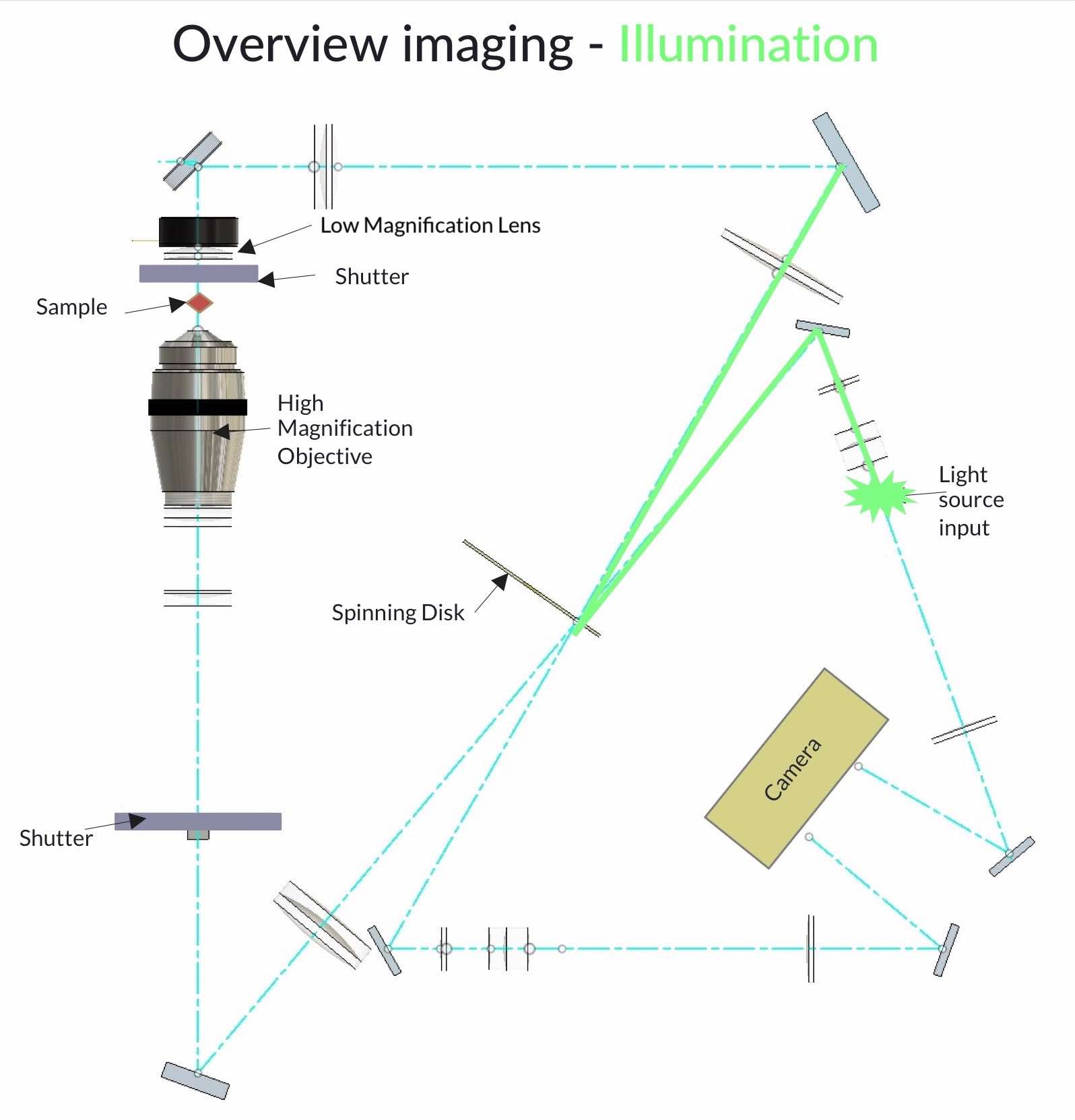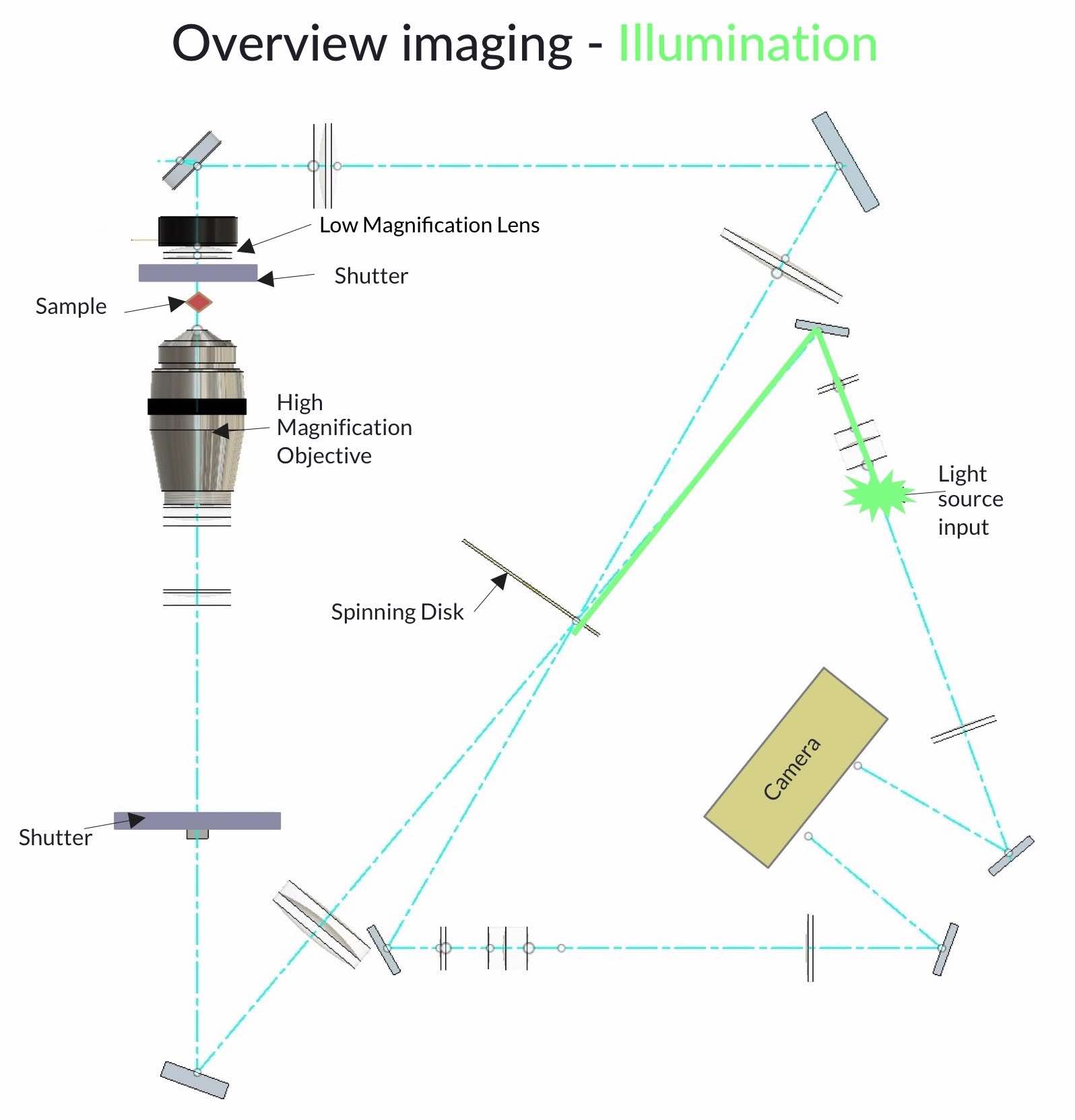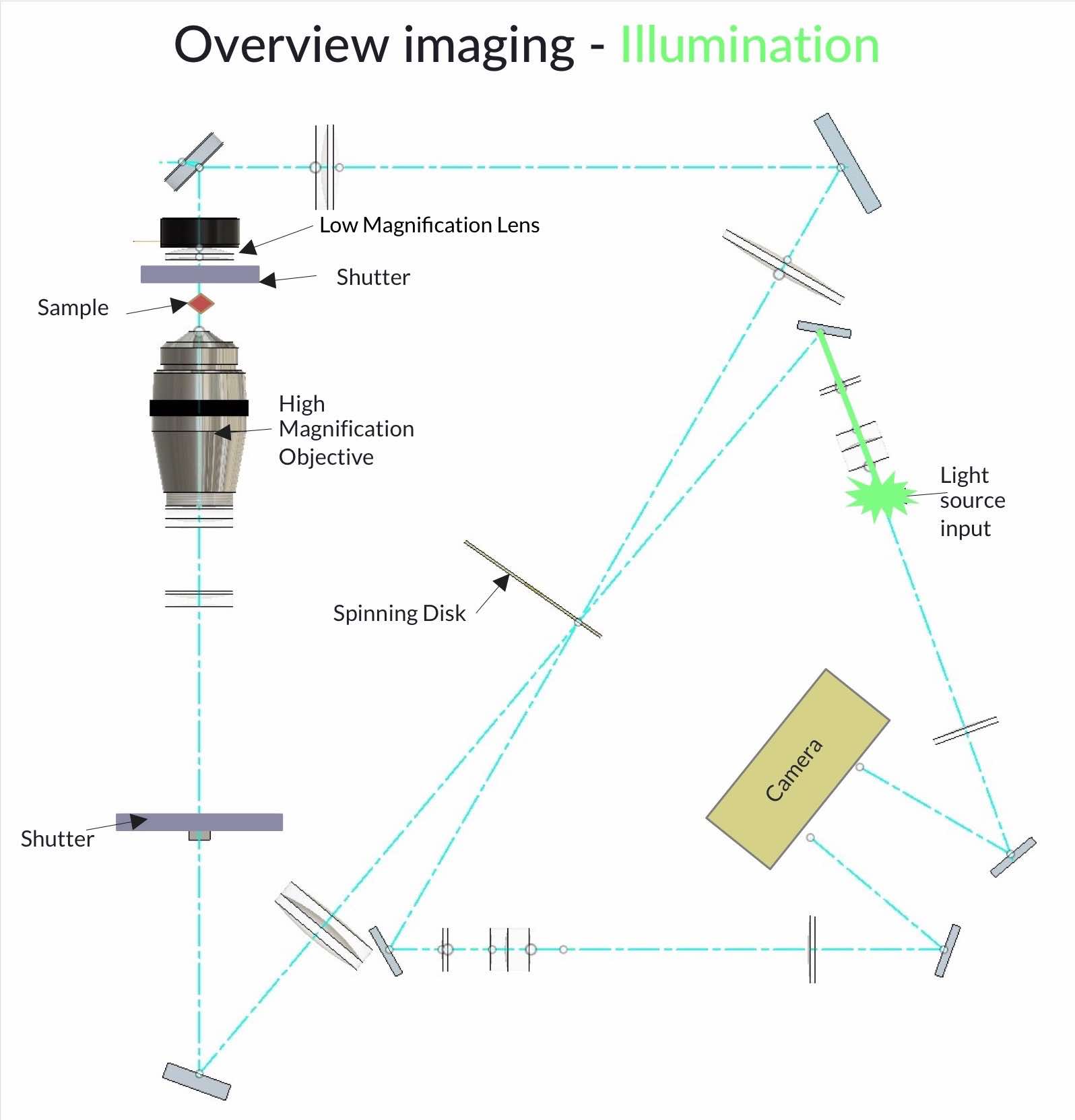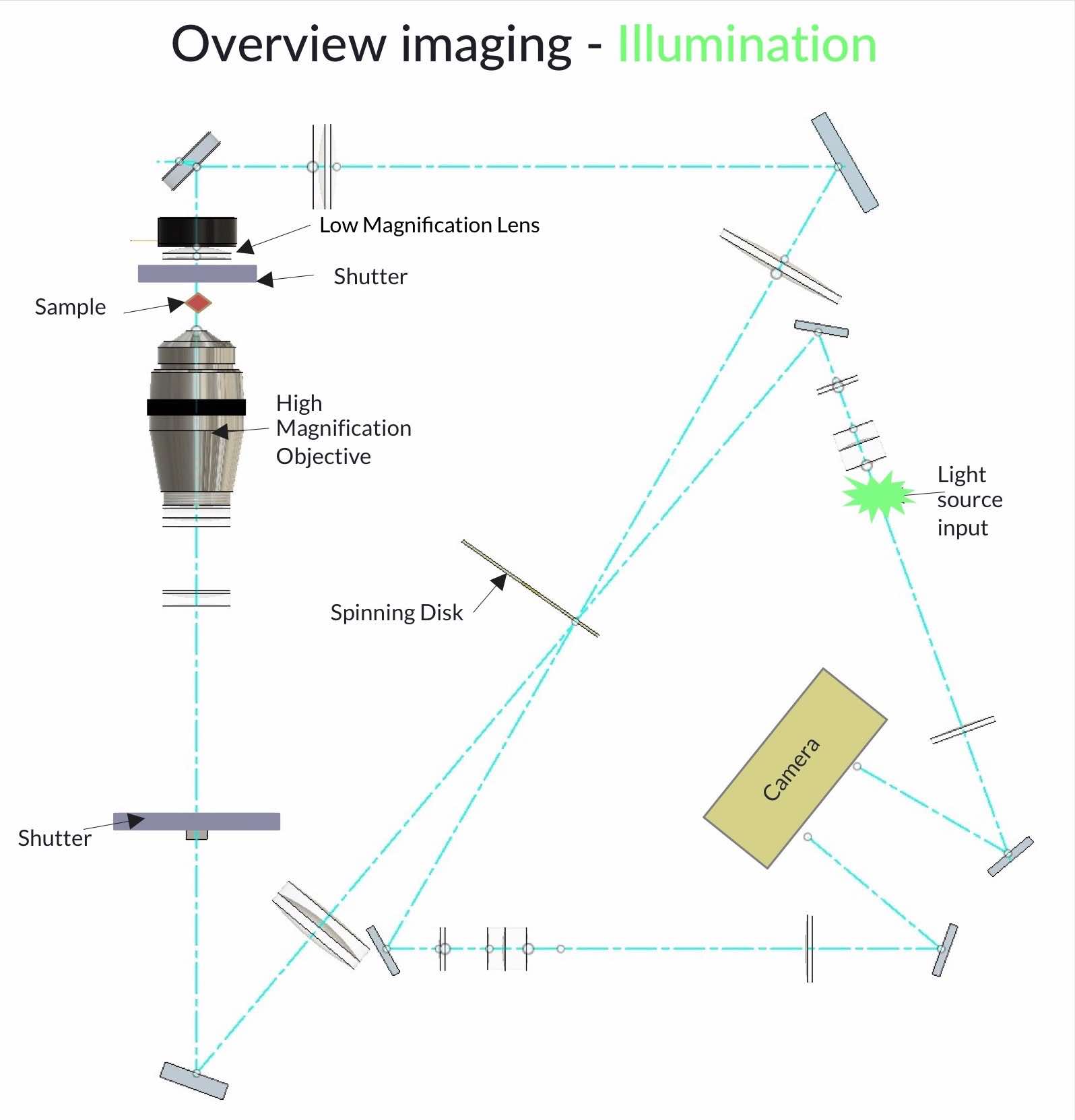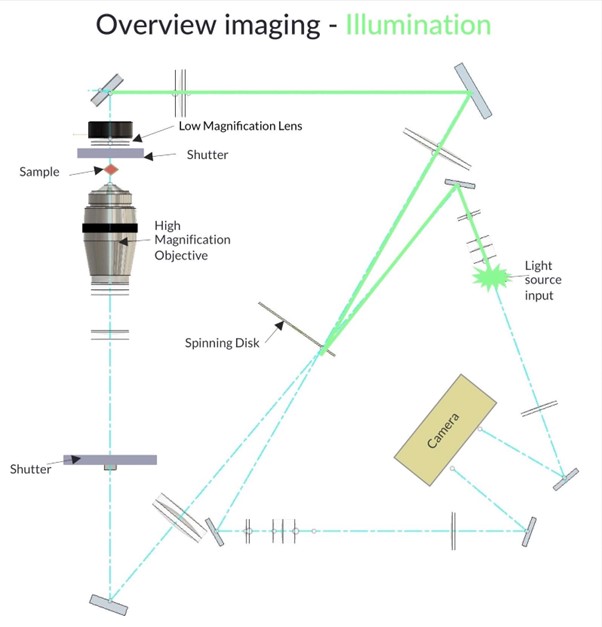Aurox Unity
Complete confocal microscope for live cell imaging
Introducing the Aurox Unity, a new breed of user friendly bench-top laser-free confocal bringing affordable high speed, high resolution imaging to your laboratory.
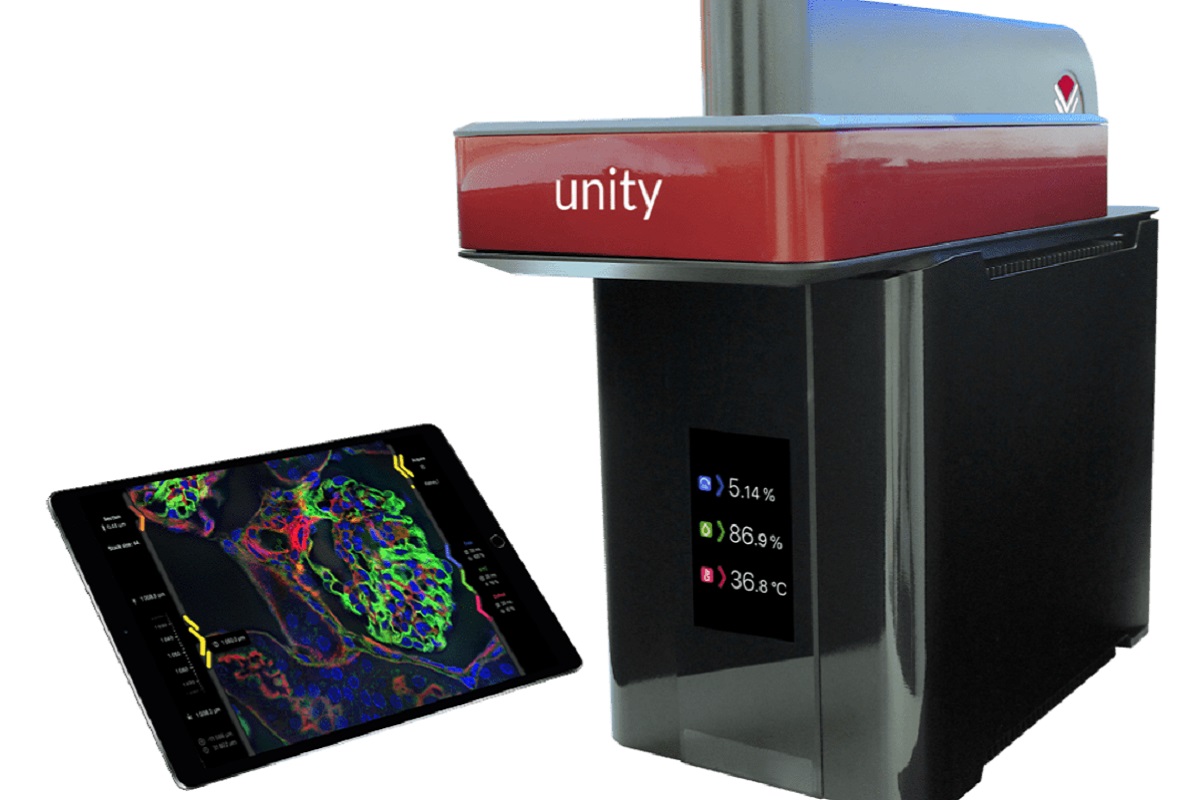
Flexible and adaptable
UNITY FOR ALL YOUR IMAGING EXPERIMENTS:
Long time-lapse experiements
Time-lapse is easy with Unity
Simply define your region of interest.
Then it’s:
- One tap and a drag sets the time-lapse duration, and
- Tap and drag again to set the time-lapse interval.
Unity for live-cell imaging
With its go anywhere design and integrated vibration dampening, Unity is ideal for use in the light and airy open laboratory, being:
- Compact and self contained;
- Easy to use with minimal interaction;
- Easy to move and locate;
- Easy to maintain / clean;
- Plug and play.

The compact and fully integrated design of Unity makes it the ideal confocal microcope for use in the CAT-3 laboratory.
Unity is extremely easy to use with minimal interaction and it’s construction allows for the use of typical decontamination procedures.
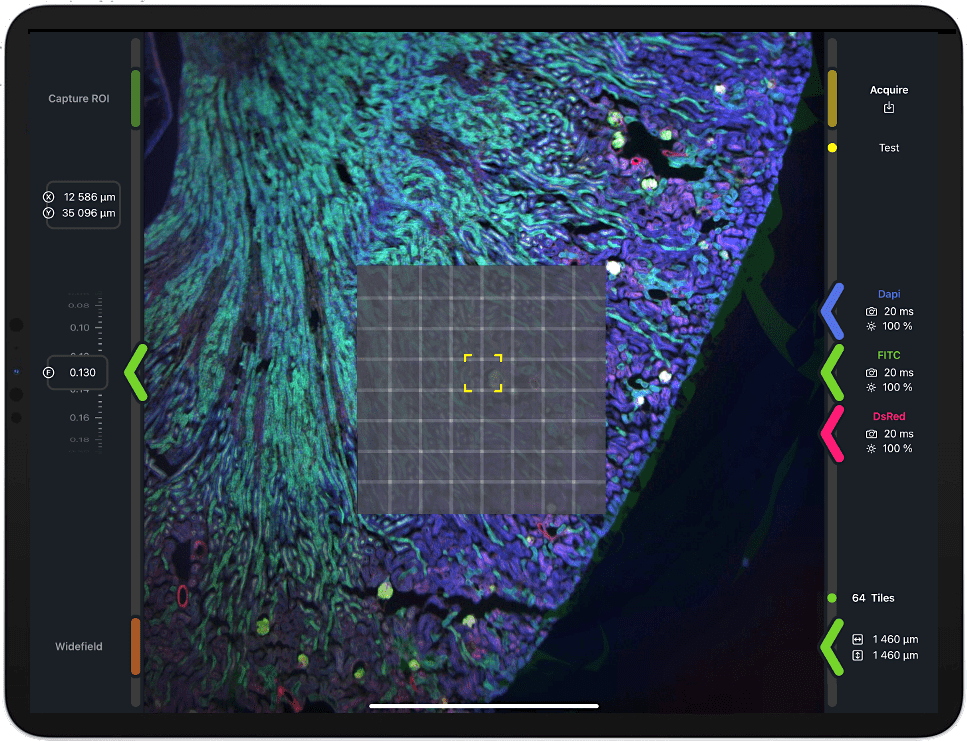
Drag-out a tilescan area
Tap and hold, then drag out a wire frame over the desired tilescan area.
Unity does the rest.
Define the Z-stack range
Spin the focus Z wheel up and down and tap to mark the top and bottom of the Z-stack.
1, 2 or 3 colour channels at a time
One tap each switches on or off the colour channels.
Set exposure times and brightness by dragging up or down on the respective colour chevrons.
Handy histograms help you achieve optimal settings.
Confocal or widefield at a tap
One tap and it’s all about confocal. Tap again and it’s widefield.
Adjusting the sectioning is just a tap!
Multiple regions of interest
Add one or more regions of interest (ROI) to an experiment.
Choose a ROI, adjust the settings and swipe right to set a region of interest.
Repeat, as many times as you like.
At anytime, swipe down with two fingers to review and edit the set ROIs.
Plates, dishes and slides with Unity sample holders
Unity is supplied with three interchangeable sample holders allowing you to image all your samples, whether they are mounted in multi-well plates, petri-dishes or slides.
Each of the Unity sample holders has a retention system to hold the sample securely in the holder and a three point magnetic location system which connects to Unity’s XY stage on loading. This system ensures the sample holder position is securely held throughout imaging experiments.
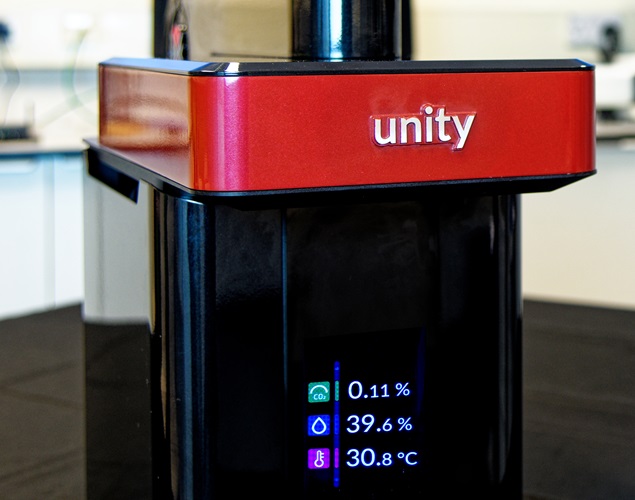
Unity’s live cell capability
Unity’s red cased incubator sample stage provides heating and CO2 gas connections for sample environment control, allowing your live-cell samples to be maintained at 35-37 degrees Celsius and under CO2 for the duration of your longer term imaging experiments (external humidifier and CO2 mixer required).

Tap, drag and swipe with Unity’s IOS software
Unity iOS provides all the functionality required for the set-up, control and review of confocal and widefield imaging experiments in a quick and easy to use iPAD application.
Imaging is easy with Unity.
Simply:
- Tap
- Drag
- Swipe
Unity’s iPad Controller
FOR DIGITAL CONTROL
Unity comes complete with an Apple iPad tablet computer for full fingertip control.
The iPad communicates directly with Unity over a dedicated and secure private wireless connection, issuing commands and visualising data saved on Unity’s built in image server.
For speed of data stream response, images are optimised for fast feedback and display on the iPad. The full high resolution collected images are permanently stored on Unity’s internal server.
The iPad works as a remote control, issuing commands and receiving feedback. All command actions are controlled by Unity’s internal control software and firmware.
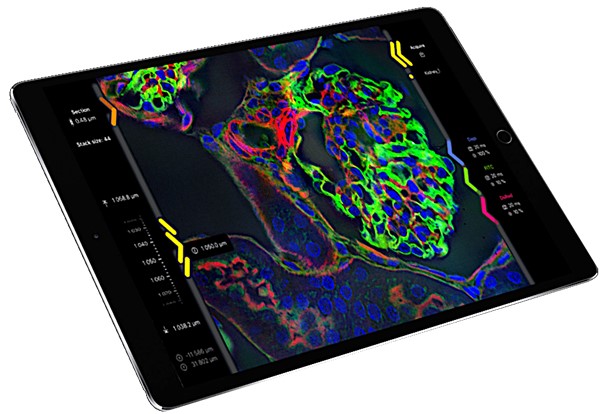
Unity’s choice of light
Our spinning disk confocal technology is upto 50% more light efficient than our competitors, meaning Lasers are not needed.
Instead, Unity uses a built in multi-spectral LED light source of high brightness and based on the CoolLED pE-300Ultra, making Unity:
- Free from laser safety restrictions;
- Low photo-toxicity;
- Low photo-bleaching;
- Low maintenance;
- Low cost of ownership.
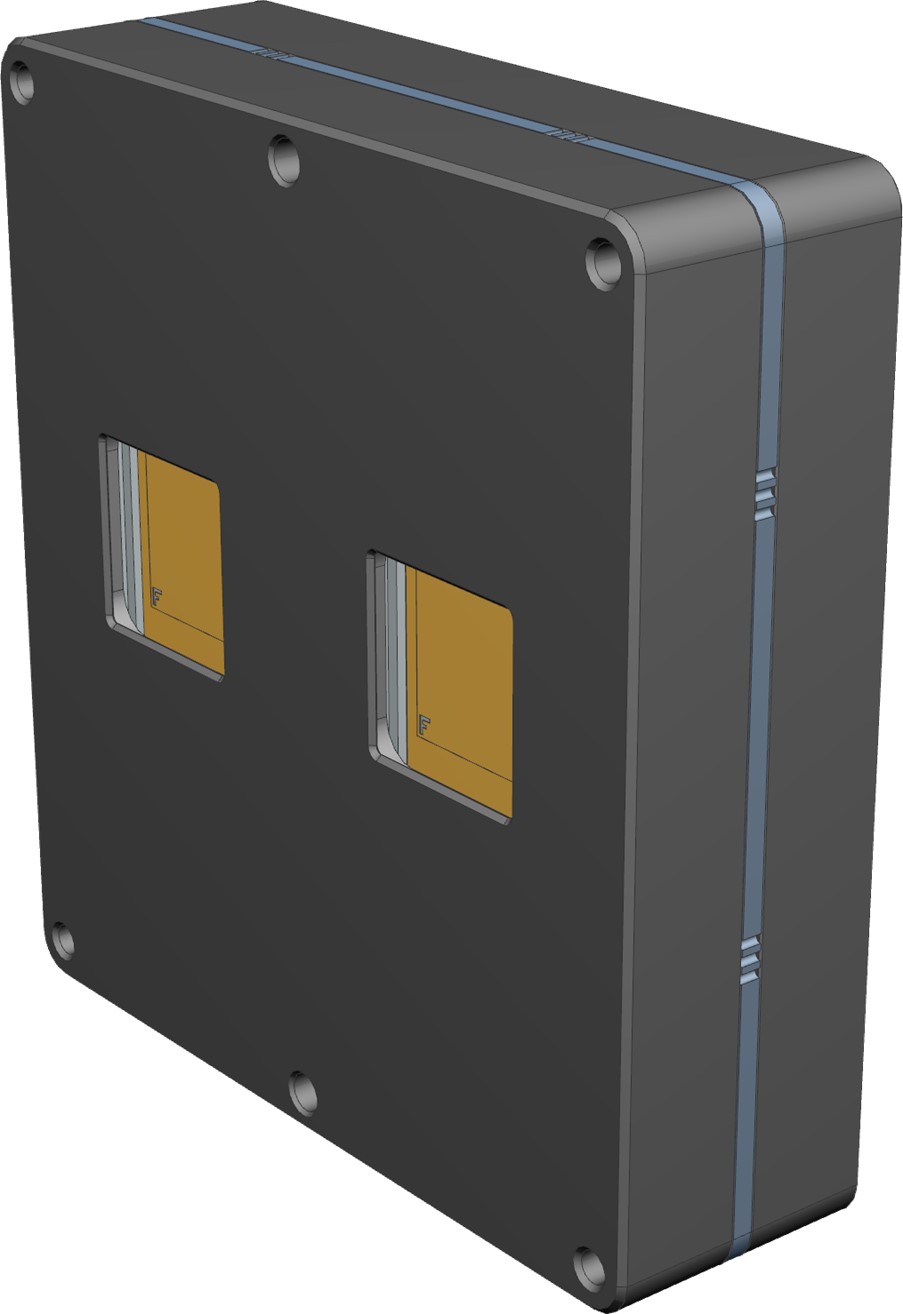
Unity’s 2×4 megapixel scientific CMOS-based camera
At the heart of Unity is a custom designed large format and high performance sCMOS digital camera. Developed in collaboration with Ximea, the camera has been designed specifically for use in Unity and for confocal imaging experiments.
Unity’s camera has a novel design, consisting of two 2k x 2k scientific grade CMOS chips mounted side by side with shared electronics such that the two chips are pixel to pixel registered allowing Aurox’s patented approach to laser-free confocal imaging.
Unity uses the camera to record both confocal and widefield images in both the low magnification sample overview mode (large field of view of 4mm x 4mm) and also in the high magnification 4-100x mode for the imaging of high resolution Z-stacks.
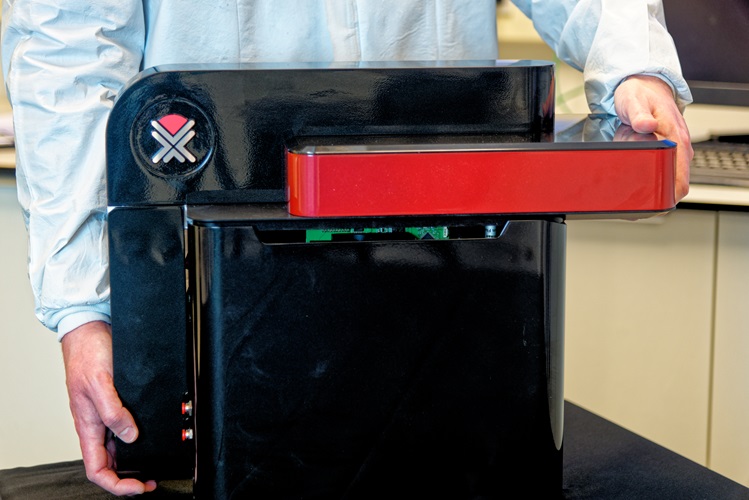
Plug and Play
Designed for the laboratory bench-top, Unity is extremely compact and self-contained, weighing less than 25 Kg. Gone are the tangle of cables found on other confocal systems. Unity requires a single power cable and has rear ports for the connection of a CO2 supply. Unity can be networked wirelessly, but it also has a wired network connection and multiple USB-3 / USB-c ports if required.
Unity’s CPU and image server
Unity does more than just collect high quality confocal imaging data. Unity also stores your data on 4TB SSD integrated drive and makes your data accessible to you, wherever you are, over a secure network.

Unity’s patented optical path
The patented optical path is central to the design of Unity and its enabling technology. It allows sample imaging from both above and below the sample, providing confocal and widefield imaging whilst maintaining an extremely compact size.
Scroll through the images to see this in action.
| Key specifications | Clarity |
|---|---|
| Confocality | Structured illumination, spinning disk. 3 grid densities for matching sectioning and throughput to objective and sample |
| Disk | 3 sectors provide adjustable sectioning strength down to 0.6 μm (FWHM) with 1.4 NA oil immersion lens |
| Minimum exposure | 20 ms |
| Maximum frame rate | Up to 40 fps (1 color) |
| Up to 13 fps (3 colors) | |
| Imaging channels | 3 integrated filter channels, DAPI, FITC, TRITC. |
| Channel switching | Instantaneous. |
| Detector | Integrated sCMOS 2x(2048×2048), 6.5 µm pixels. |
| Excitation range | 370 – 700 nm |
| Emission range | 410 – 750 nm |

